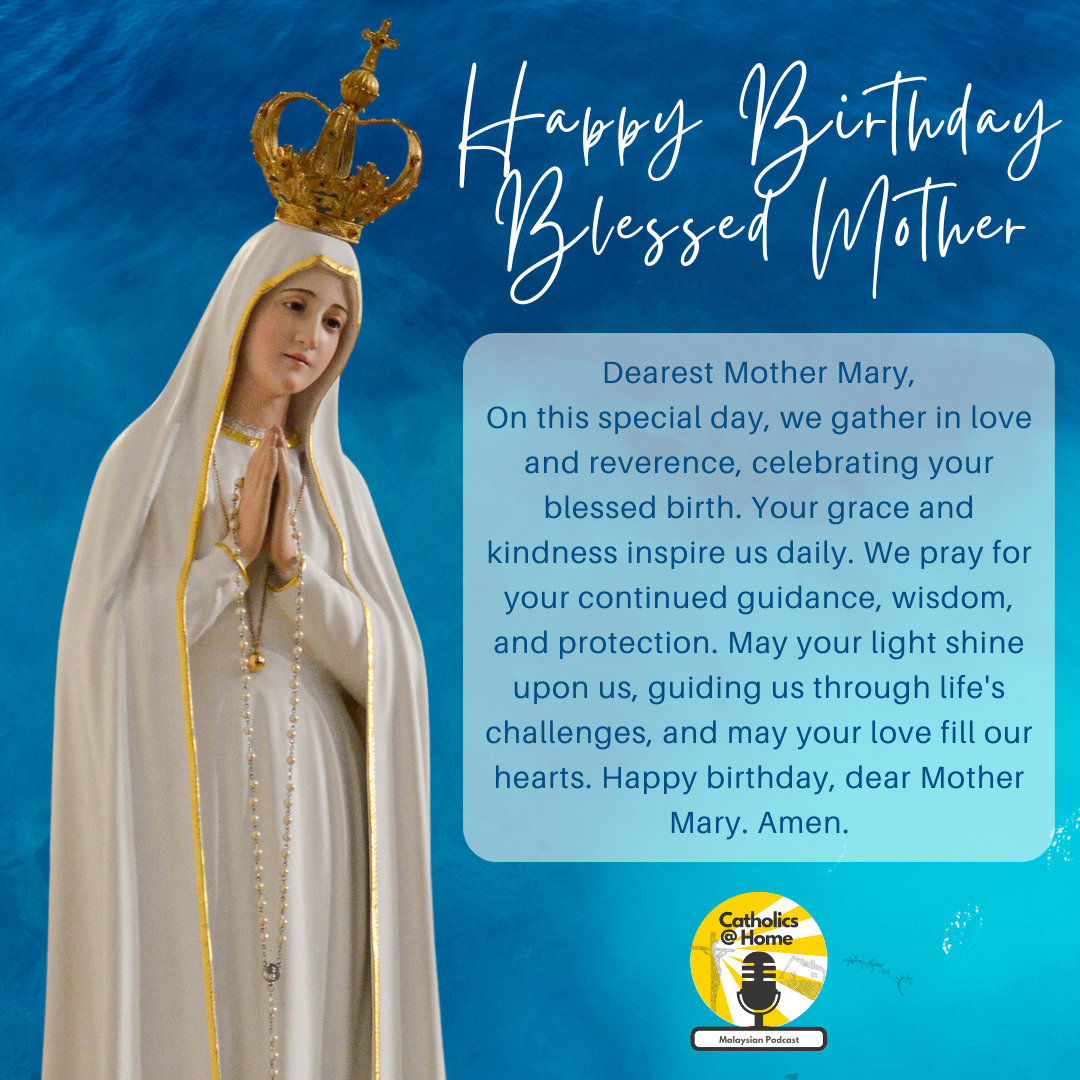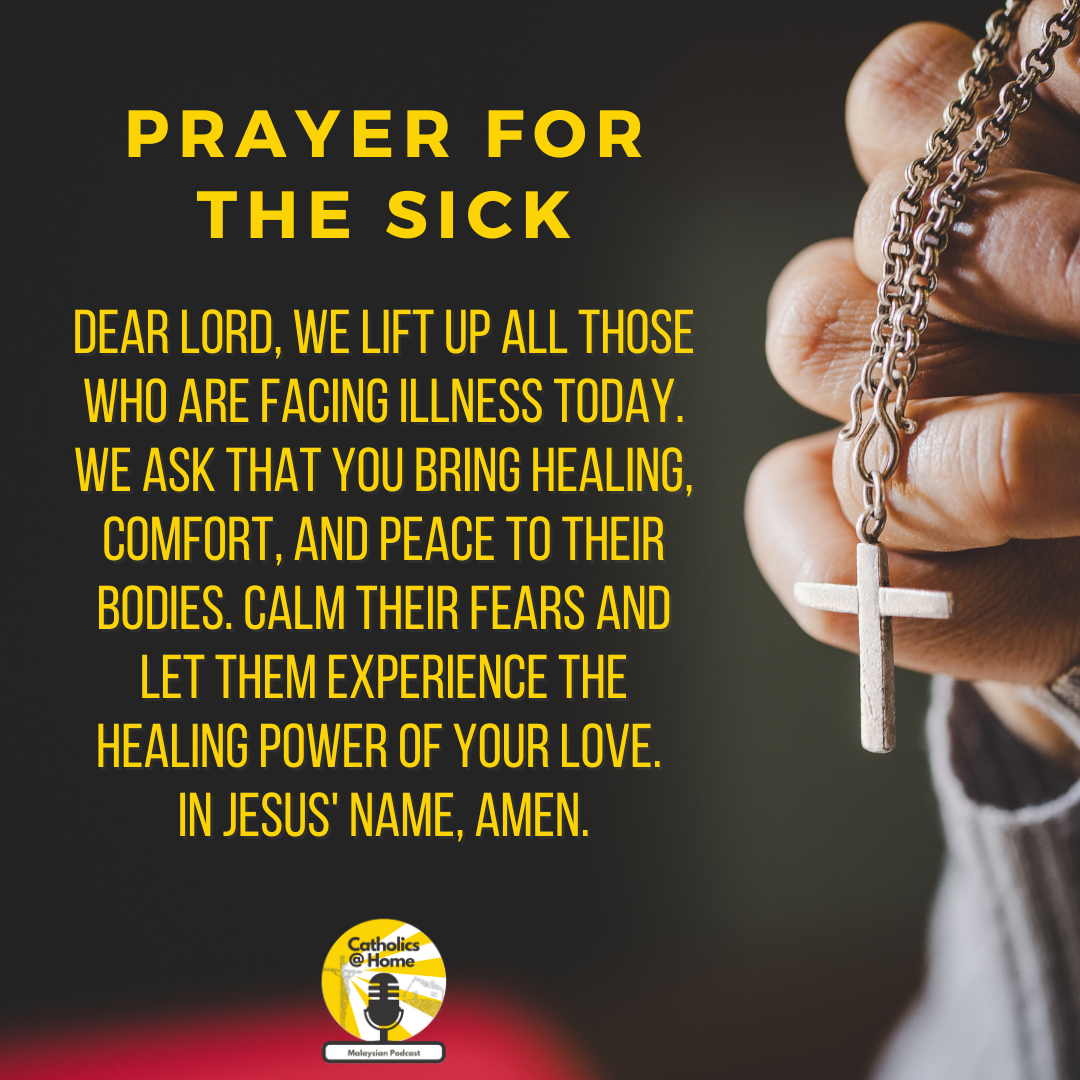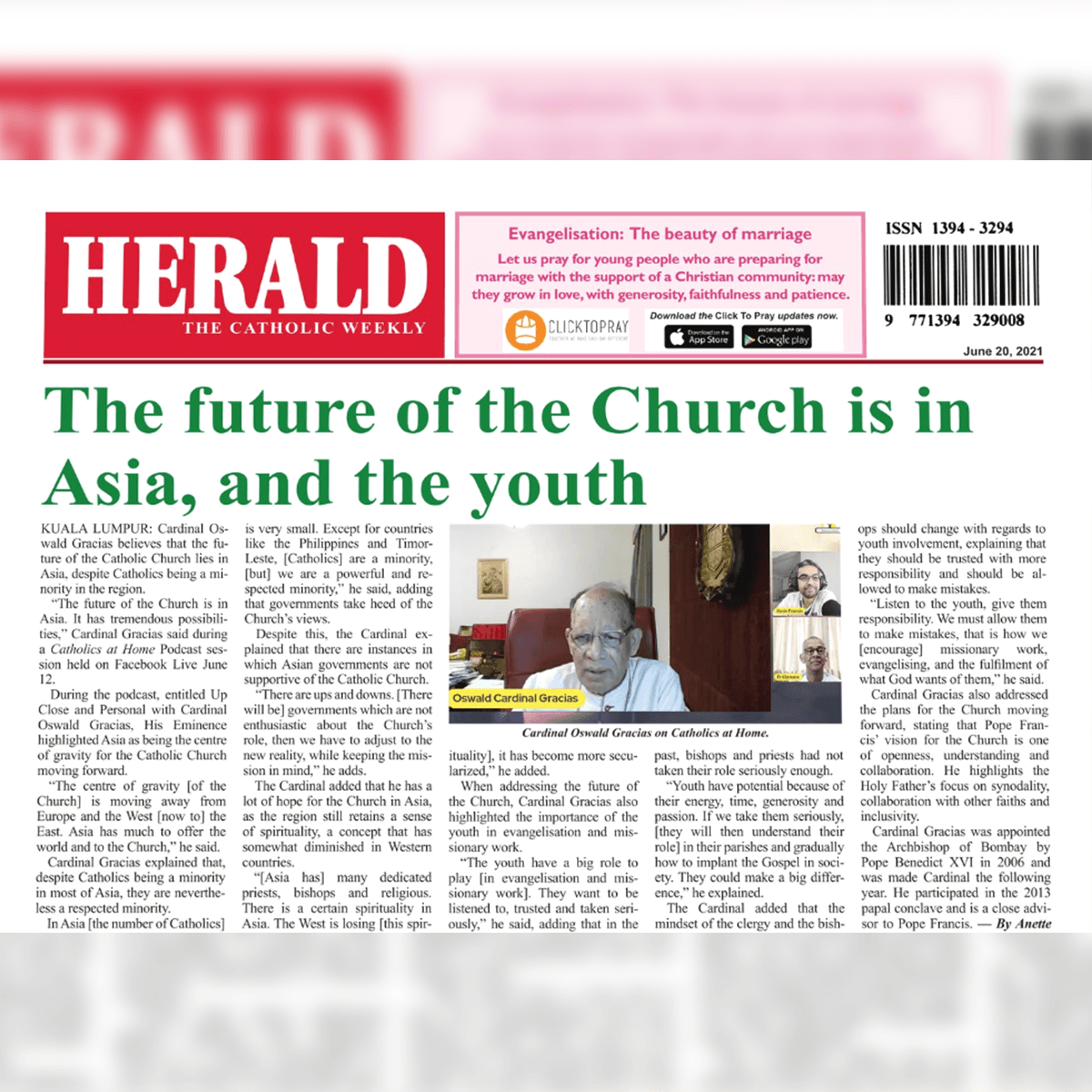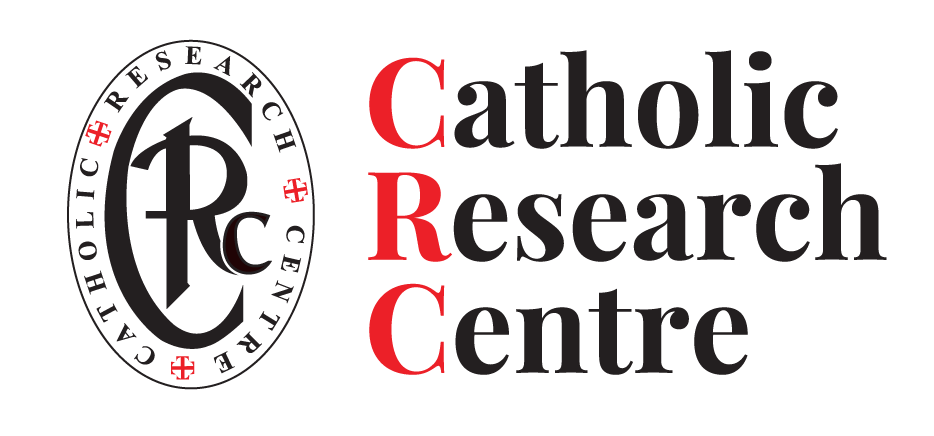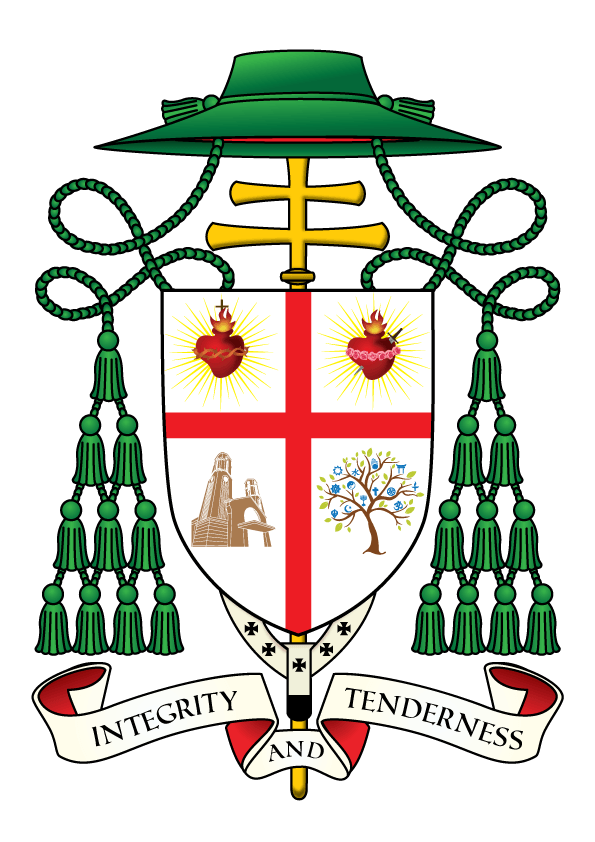In The News
Recent news
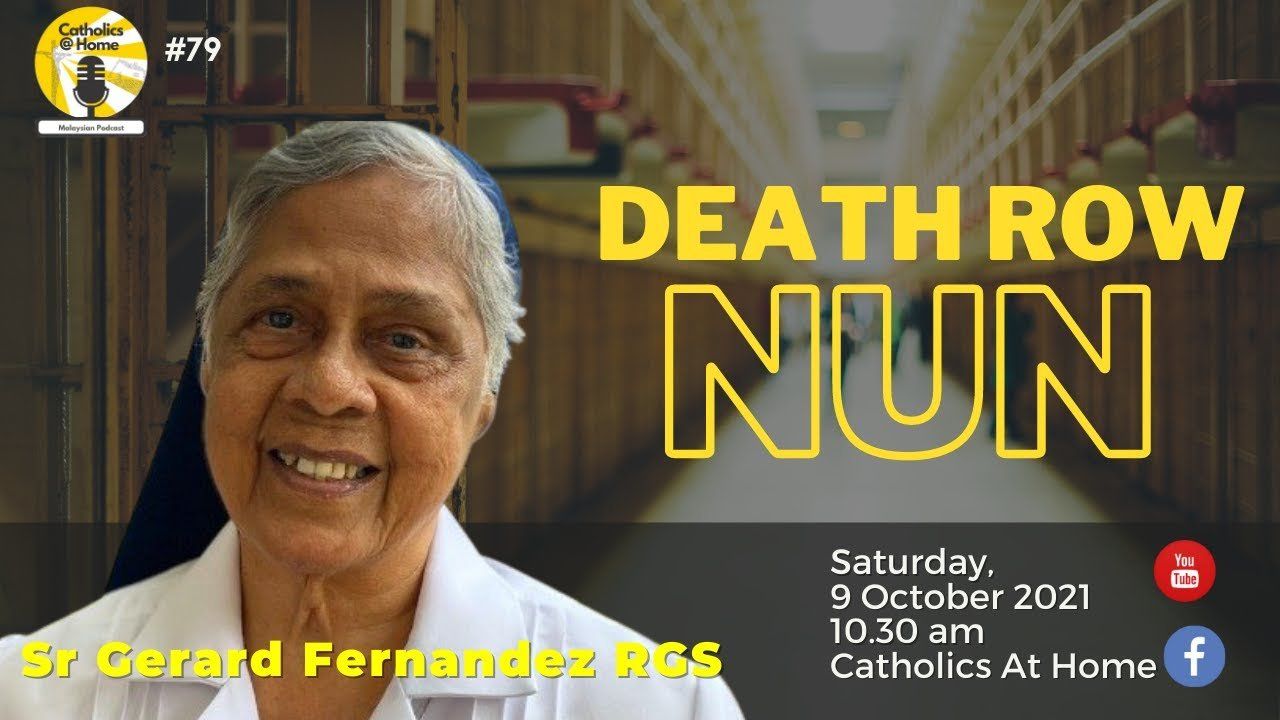
Catholics at Home podcast had an interesting guest recently in the person of Sr Gerard Fernandez, a Good Shepherd sister recognised for her ministry with death row inmates. Sr Gerard had co-founded the Roman Catholic Prison Ministry in 1977 in Singapore and worked as a death row counsellor for 40 years during which she accompanied 18 inmates to the gallows. In 2019, Sr Gerard became the first Singaporean to be listed in BBC’s annual list of 100 influential women from around the world. Now at 83, she has retired from prison ministry. One of Sr Gerard’s first experiences working with death row inmates was with the infamous Toa Payoh Ritual Murder Trial that took place in Singapore in 1981. In that case, Adrian Lim, who was a temple medium, together with his wife Catherine Tan Mui Choo and his mistress Hoe Kah Hong were charged for murdering two children as part of ritualistic offerings to the Hindu goddess Kali. The trio were sentenced to death in May 1983 and sent to the gallows in November 1988. Sr Gerard was emotionally connected to that particular case as Catherine Tan Mui Choo was one of her students at Marymount Centre in Singapore, a home run by the Good Shepherd Sisters. “When I read in the papers about what Catherine had done, it tore at my heartstrings and I wanted to reach out to her,” says Sr Gerard who visited and counselled Catherine every week for 7 years before her execution. Sr Gerard had sent Catherine a picture of the Sacred Heart of Jesus and during one of her visits, Catherine had told her, “When I look at Jesus, He seems to look at me lovingly, but sometimes He seems to be chiding me.” Catherine had asked where was God when she murdered the children, to which Sr Gerard responded, “He was right there in your heart, just waiting for you to call on Him, but you didn’t.” Sr Gerard testifies that she lives by the motto of Saint Mary Euphrasia, foundress of the Good Shepherd Sisters, “One person is more precious than the whole world.” “Saint Mary Euphrasia tells us that every human life is precious, and that is what drives me when I reach out to these residents at Changi Prison,” says Sr Gerard. “I wonder at the beauty of God in death row. God’s presence there is something we don’t understand. It’s a place where He loves. Sr Gerard recalls sharing with Fr Terence Pereira that when someone walks their final journey to the gallows, the prison was like a community sending someone off. “As they walk to their deaths, the rest of the inmates in their cells are happy. They are praying with them and are singing with them. This place has so much joy and yet we’re sending someone to be killed,” she had shared with Fr Terence. “Fr Terence said to me, “It is because good has triumphed over evil”. There is no fear of death as they walk to the gallows because God takes over.” Sr Gerard describes her experiences at an execution. “They’re usually handcuffed when they go to the gallows. I’ll put a rosary in their hands so that they can touch it to the end. When the bodies are taken down, they’re still warm. Their eyes are closed and their tongue sticks out a bit. And when they go, they’re peaceful. “This is the way God works. He doesn’t abandon them when they’ve done something wrong like murder. He is there for them till the very end. When they open themselves to His presence and to His love, they go peacefully,” she says. To watch this podcast, go to https://www.youtube.com/watch?v=crJUMPb-PGU
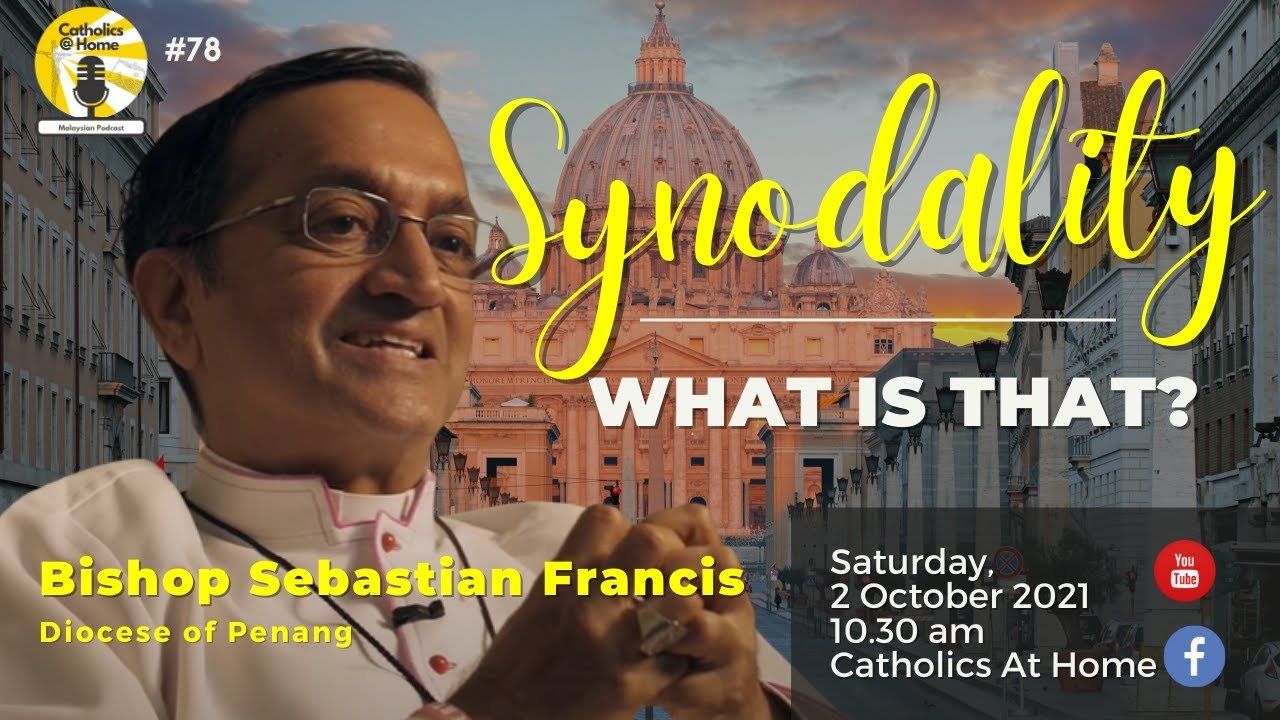
As the world recovers from the ravages of the COVID-19 pandemic, Pope Francis has invited the whole Church to embark on a journey with him towards the Synod of 2023 by questioning itself on synodality, a decisive theme for the life and mission of the Church especially in post pandemic times. Speaking about the Synod of 2023 during a recent episode of Catholics at Home podcast, Rt Rev Sebastian Francis said, “The theme of the synod is, ‘For a synodal Church: communion, participation & mission’ which means what kind of Church are we going to have in 2023 and beyond.” Bishop Sebastian is the Bishop of Penang Diocese and President of the Catholics Bishops’ Conference of Malaysia, Singapore & Brunei (CBCMSB). “The word, ‘synod’ is a Greek word which means ‘meeting’, ‘counsel’ or ‘gathering’. However, over the years, ‘synod’ has taken on a meaning of ‘journeying together’ in the English language,” he explains. “The word, ‘synod’ only came into use in 1965 after Vatican Council II when Pope Paul VI established an instrument called the Synod of Bishops. This means whenever the Pope feels the need to bring the Universal Church together, he has the freedom to call us. The Pope is the only person who can call for a Synod of the entire Church.” Bishop Sebastian notes that the handbook of the Synod of 2023 is called ‘vademecum’, a Latin word which means ‘walk with me’. “Pope Francis is telling each one of us, “I want you to walk with me in this journey towards the Synod of 2023”. So, we’re going to walk together with Pope Francis, and he is going to ask for your comments, your feelings and your insights on a certain number of things,” he says. There are 10 areas or thematic topics that the Pope wants to consult the faithful about, some of which includes the quality of our listening; the need to speak out on freedom, truth, charity and on things that are important for the Church; ecumenism and the need for formation in order to become a participatory synodal Church. The Synod of 2023 will be launched by Pope Francis on 10 October 2021 from St Peter’s Basilica at the Vatican. One week later on 17 October 2021, bishops throughout the world will launch the synod in their respective dioceses. Bishop Sebastian revealed that he will launch the synod in the Diocese of Penang with 9.00am Mass at the Cathedral of the Holy Spirit. He has also prepared a pastoral letter for the diocese and beyond. After the universal launch, the synod will move into consultation phase, followed by discussion phase and lastly, the implementation phase. The synodal journey will culminate in October 2023 with the Assembly of Bishops at the Vatican. “In previous synods, much of the three phases only involved the bishops. This time Pope Francis has come up with simple ways in which the consultation phase is able to reach the rock bottom of the Church. He wants everyone to be involved,” explains Bishop Sebastian. He added that an 11-member Central Committee has been formed comprising one member from each Diocese working together with the CBCMSB to facilitate the synodal process. “The task of the Central Committee is to help the eleven Dioceses in Malaysia, Singapore and Brunei bring this message to the grassroots, i.e. to everyone in the Church. “By February 2022, the Central Committee will collate findings from the Dioceses and present it to CBCMSB who will then finalise and submit it to the Vatican by April 2022,” says Bishop Sebastian. He notes that there may be those who wants to contribute, participate and say something about the Church that is close to their heart, but don’t have the opportunity to participate in the survey. They may email their feedback to the CBCMSB Executive Secretary at exesec@cbcmsb.org or directly to the Vatican at synodus@synod.va For more information about the Synod of 2023, visit https://cbcmsb.org/synod-of-bishops-2023/ To view this podcast, go to https://youtube.com/watch?v=cDLsNF8XGBk

The story of Fr Rob Galea is one of bad boy turned Catholic priest. His music has touched the hearts of thousands around the world and he had the privilege to sing for two Popes. Fr Rob was a guest on a recent episode of Catholics at Home podcast. When not singing about the love of God, Fr Galea serves as assistant parish priest at St Kilian’s Catholic Church, Bendigo in the Diocese of Sandhurst in Victoria, Australia. He is also founder of FRG Ministry, a not-for-profit Catholic organization that develops relevant and engaging resources to bring the love of Jesus to people of all ages across the world. Whilst growing up in Malta, his native country, it never came across Fr Galea’s mind to become a Catholic priest. In fact, he had a rebellious period in his early teens when he ran away from home, became an addict and mixed with gangs. By the time he was 16, Fr Galea wanted to end it all by taking his own life. However, an encounter with God changed everything. “I reached the end of where I was, the end of myself, and God encountered me in that place of desperation. And I discovered joy, hope, a love that changed my life forever,” he shares. After encountering God’s love, Fr Galea started playing the guitar. He eventually wrote a song for a friend who had died of sickness. The parents of his deceased friend asked Fr Galea to record the song which went on to become Malta’s best-selling album. He started receiving record deals in the United Kingdom and signed up with an American record label. Fr Galea’s musical career was progressing rapidly. “I used to pray that I will sing and tell the world about God’s love, but I put one condition for Jesus – I’ll do whatever you want, but please don’t let me become a priest,” says Fr Galea. The two main reasons are because he did not have a joyful model of the priesthood, and he wanted to get married and have a family. Fr Galea’s calling to the priesthood started in Italy when he was performing at a concert. “I was playing music when this priest walked in and he was full of joy – my first role model of joyful priesthood. In the middle of the concert, I prayed that I still don’t want to become a priest, but if I could be anything like this guy, I’ll consider it,” he recalls. Fr Galea soon decided to join the seminary and had to end a four-year relationship with his girlfriend. It was a difficult moment but she had to let him go. Years later, she met someone else and had asked Fr Galea to preside at her wedding Mass. In 2015, Fr Galea had auditioned for X-Factor Australia and was rapidly rising in the talent show, but pulled out after he has had enough of the limelight. “It’s not about the fame, but about giving Jesus to the people. I want to be known as someone who’s in love with Jesus and who shares the love of Jesus,” he says. “Music has the power to transcend the mind, to go beyond our circumstances and go straight to the heart. Music is a beautiful instrument to allow people to encounter the Gospel – the message of God’s love for them.” Fr Galea is also an accomplished author and his book, Breakthrough is being made into a Hollywood movie. To view this podcast, go to https://www.youtube.com/watch?v=c0BhtdiLzeQ
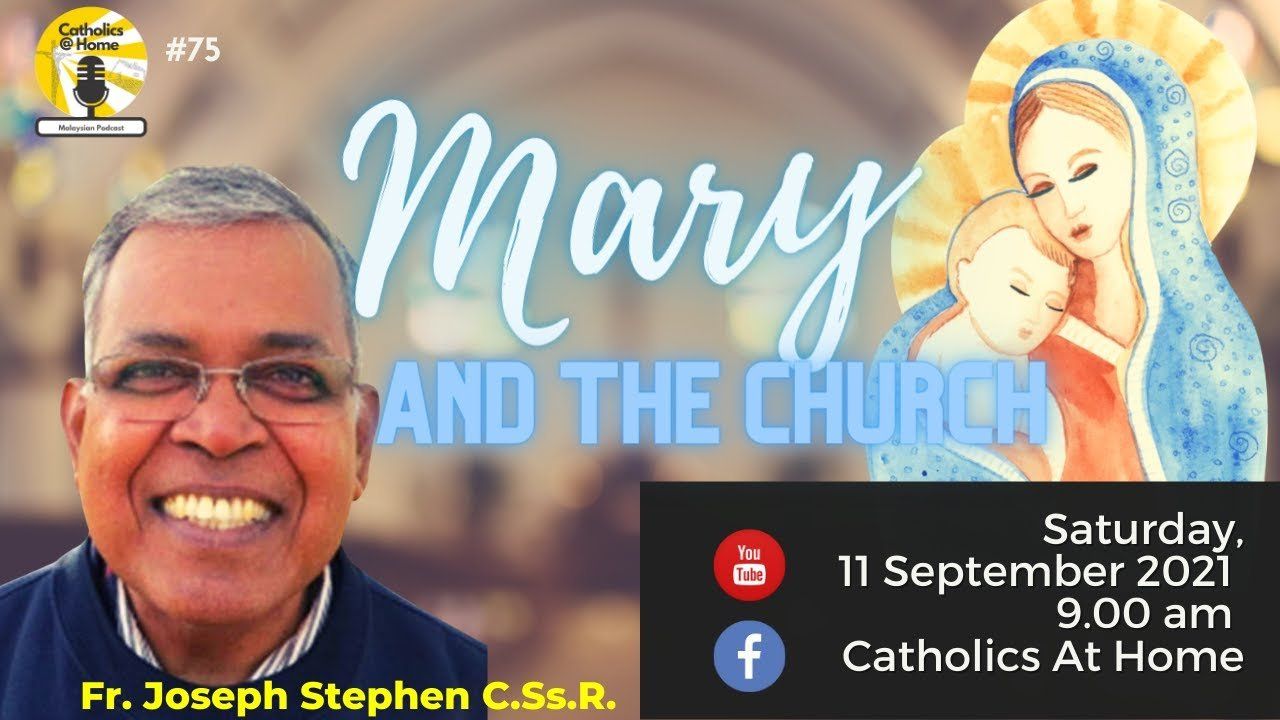
Little is mentioned about the Virgin Mary in scripture, yet she has a special place in the hearts of many devotees. In a recent episode of Catholics at Home podcast, Fr Joseph Stephen, CSsR, spoke about Mary and her role in the life of the Church. A Redemptorist priest, Fr Joseph is based at the Church of Our Mother of Perpetual Help in Ipoh, Perak. “In the early church when the disciples meet anyone who wanted to learn about the faith, they will invite the person to join them. This is because the community in the early church believed, practiced and passed on valuable information and faith formation to its followers. That is where we begin to see the importance of the Virgin Mary,” said Fr Joseph. He said that Catholics are brought up with two kinds of teaching, i.e. Scripture and Tradition. The word, ‘Tradition’ is not everyone’s favourite word as it connotes holding on to old ways and old ideas. However, he explained, “Tradition simply means passing on what we believe and what we love. That is what the early church did – they passed on to us what is great value for our faith formation and what is important to us as we try to embrace the person of Jesus Christ. In that way, they passed on the person of the Virgin Mary as a special person, as a faithful disciple of Jesus Christ and later on, as Mother of the Church.” “The early Fathers of the Church started putting these Traditions down in writing and soon it becomes an official teaching of the Catholic Church. That is where the Virgin Mary started playing a prominent role in our Catholic way of life.” Fr Joseph commented that Mariology is a course that is seldom offered in seminaries and in formation for priests and religious. As a result, there is a tendency amongst certain priests and religious to make the Virgin Mary minimalistic by removing her statues, holy pictures and limiting anything that is related to her. On the other extreme, there are certain laity who sees the Virgin Mary in everything because they inherited this devotion from their parents. “The missing link is that good and sound teaching is needed, and unless you’re formed in proper Mariology, you’re going to float between these two extremes,” said Fr Joseph. “The role of the Church is to encourage Mariology and to teach sound Mariology to the people so that we’re able to place the Virgin Mary in her rightful place as we venerate her as our Blessed Mother.” In this ongoing education, Fr Joseph observes that there are positive signs emerging as there are many online Mariology programmes available these days where people are engaging themselves and learning from it. “Faith doesn’t grow in the same way amongst all of us. It takes on different shapes and forms with different people. We hope we’ll get that balance in our teaching and in our understanding,” he said. To view this podcast, go to https://www.youtube.com/watch?v=2qjQ5vN8t1o
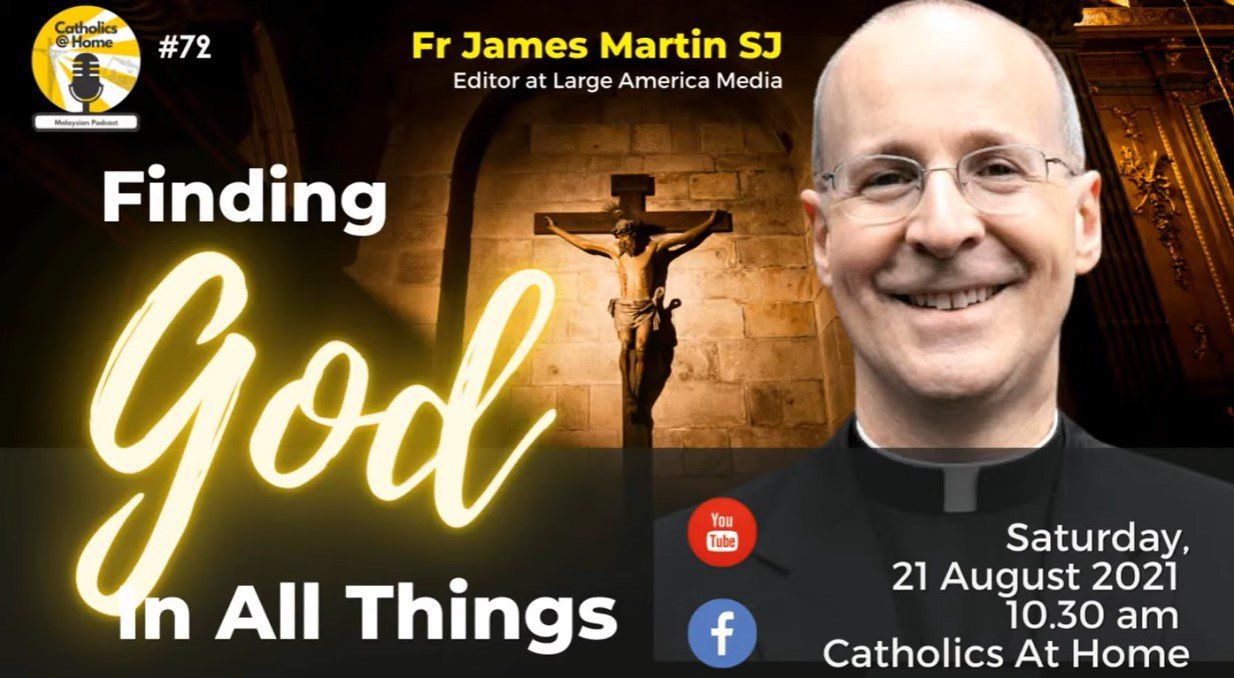
“Every moment is an opportunity to encounter God,” said Fr James Martin, SJ on a recent episode of Catholics at Home podcast. He was speaking about finding God in all things." “The key is to notice where God is and to pay attention to it. It could be something as simple as the laugher of a child, or receiving a funny text message from a friend, or having a good meal. Most of our prayer life and spirituality is noticing these things. If we are not attentive, we may overlook and miss them. Fr Martin is an author and editor at large at America Magazine. He writes mainly on spirituality and religion and has written more than 15 books. In 2017, Pope Francis had appointed Fr Martin as Consultor to the Dicastery for Communication. Apart from writing, Fr Martin has experiences in the entertainment industry too. He had a small role (as a Catholic priest) in The Irishman, a movie by renowned director, Martin Scorsese. He had also worked on Comedy Central and The Late Show with Stephen Colbert. A native of Philadelphia, Fr Martin had studied Finance at Wharton School of Business at the University of Pennsylvania. He had worked with General Electric for 6 years before joining the Jesuit novitiate in 1988. He was ordained a Jesuit priest in 1999 and has been working with America Magazine ever since. Being based in New York City, it was only natural for the conversation to touch on the 9-11 terrorist attacks. Drawing parallels and contrasting that crisis with the current pandemic, Fr Martin said that both incidences may seem like negative events. However, God offers two kinds of parables. In the 9-11 crisis, the parable was the great love shown by firefighters who ran into the World Trade Centre to save lives. Similarly, during the pandemic, God’s love is seen in doctors or nurses who treat patients selflessly despite putting themselves at risk of infection. Fr Martin describes both incidences as two evils. He says that the 9-11 terrorist attack is a moral evil that happened as a result of people’s evil choices. The pandemic, on the other hand, is a natural evil such as cancer and natural disasters. “Moral evil is easier to grasp because it is a result of bad decisions made by certain people. On the other hand, natural evil is more difficult for people to grasp particularly when children fall sick. In this pandemic, it is difficult to come up with satisfactory answers,” said Fr Martin. “The invitation is to continue believing and trusting in a God that we may not understand. It is about our relationship with God even though we don’t understand God’s ways.” When asked what would St Ignatius of Loyola say when dealing with pain and suffering, Fr Martin said, “St Ignatius would encourage us to place ourselves in the presence of God and ask to be led into conversation with Jesus in prayer. To view this podcast, go to: https://www.youtube.com/watch?v=I83u7Mw60mY
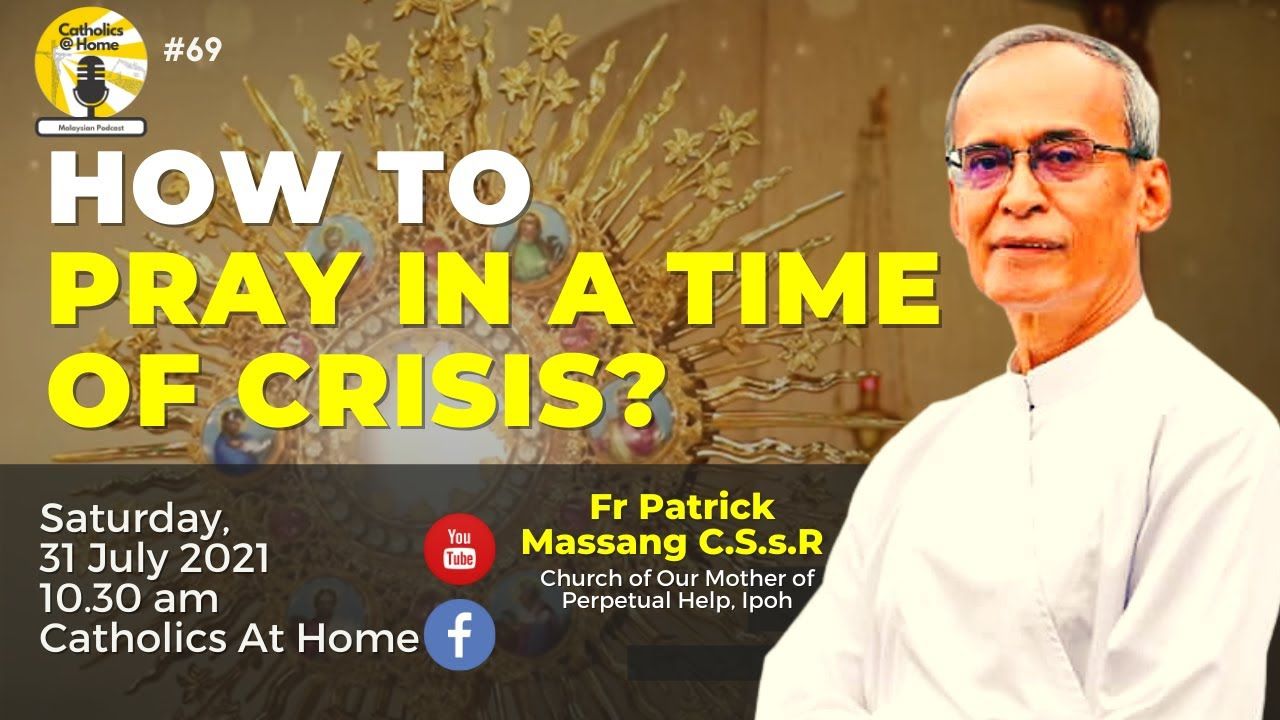
“Prayer is a beautiful gift to all of us and no one can take it away,” said Fr Patrick Massang, CssR on a recent episode of Catholics at Home podcast on how to pray in time of a crisis. “Always remember that God is the one who draws us to prayer. When we make the first move, He will draw us closer to Him,” added Fr Patrick who is based at the Church of Our Mother of Perpetual Help in Ipoh, Perak. “We need to ask ourselves, “Do I have a relationship with God?” as the level of our intimacy with God will determine the type of prayer that we’re going to say.” “There are various forms of prayer such as novena, devotions, contemplative prayer (divinely infused), etc. Depending on your disposition, find out which one works for you and begin your relationship with God. Let the Spirit lead you.” Fr Patrick said that we should speak to God as a friend who understands us. To illustrate this, he quoted St Alphonsus Liguori, “Acquire the habit of speaking to God as it you were alone with Him, familiarity and with confidence and love, as to the dearest and most loving of friends.” “We must make time for prayer – it is like quality time spent with a friend, but instead with the Lord”. He added, “Our consciousness of God’s omnipresence should be reflected in our actions and words. In this way, our whole life becomes a prayer to God.” “Do everything out of love and offer everything we do to God. That in itself gives glory to God and is a form of prayer.” In spite of the goodness that prayer brings, people may feel angry with God and lose hope during times of crisis such as this pandemic. Fr Patrick’s advice is to take time off to reconcile with God. “Prayer must never be forced. Have faith and let God do what He does best,” he said. To view this podcast, go to: https://www.youtube.com/watch?v=b6yCc9bzY3I
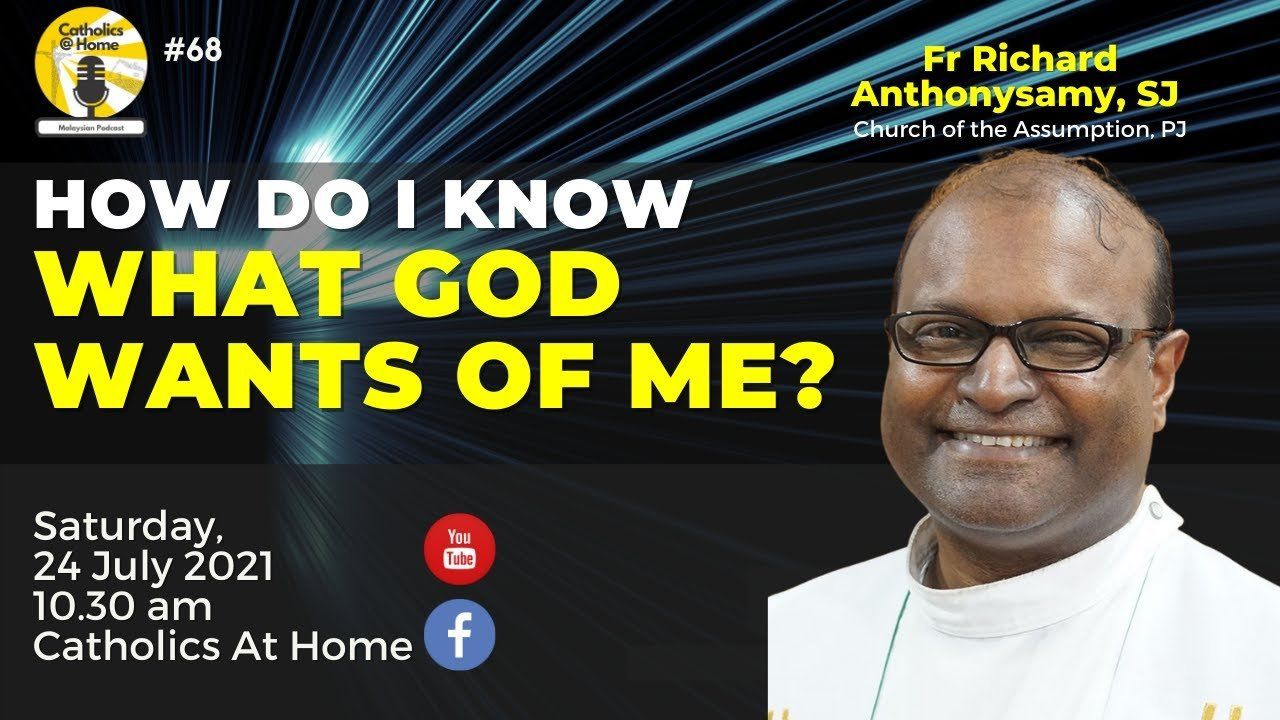
Many of us grapple when it comes to discerning what God wants us to do. We are at a lost especially if the decision to be made is complex as deciding one’s vocation, career path or even choice of spouse. Catholics at Home podcast recently conversed with Fr Richard Anthonysamy, SJ, to help viewers learn how to discern what God wants us to do. Fr Richard is currently assistant parish priest at the Church of the Assumption in Petaling Jaya, Selangor. “Discernment is a process and a decision to be made,” he said. “What’s important is it must move us in the direction that God wants us to move. If the movement is from the Lord, the Holy Spirit will guide us. He added, “A discerning person must be a prayerful person. He must be one who desires to do God’s will and expresses openness to God. When we develop that, we develop a familiarity with Christ who is central in this whole process. There may be struggles but keep at it – we need to walk the journey.” Fr Richard explained that there are three ‘signs’ to look out for in the discernment process. “First of all, ask whether the decision is something that will draw me closer to the fullness of life that God is calling me to. It must be life giving. “Secondly, we must look for interior affirmation. The decision must make us feel a growth in faith, growth in hope, growth in meaningfulness in life and it changes who you are as a person. “Thirdly, the decision must be something accessible (realistic) to you. Start with what’s in front of you and what’s available to you.” Fr Richard added, “Take that step forward and the Lord will continue to reveal the next step and the next, and you’ll start to align yourself with God. “When the right decision comes about as you go deeper into executing that decision in your life, it forms who you are and you’re at home that this was the right decision.” Fr Richard recommends having a spiritual director in the discernment process, who may be a priest, religious or lay person. “Spiritual directors won’t tell us what to do, but they act as a sounding board for guidance,” he says. It is important to note that mistakes still can be made despite going through a proper discernment process. In such situations, Fr Richard said, “We have to see whether the decision can be undone. There’re some decisions that cannot be undone, so we embrace it, move along and live it fully.” To view this podcast, go to: https://www.youtube.com/watch?v=Qe0CBvtIQhg
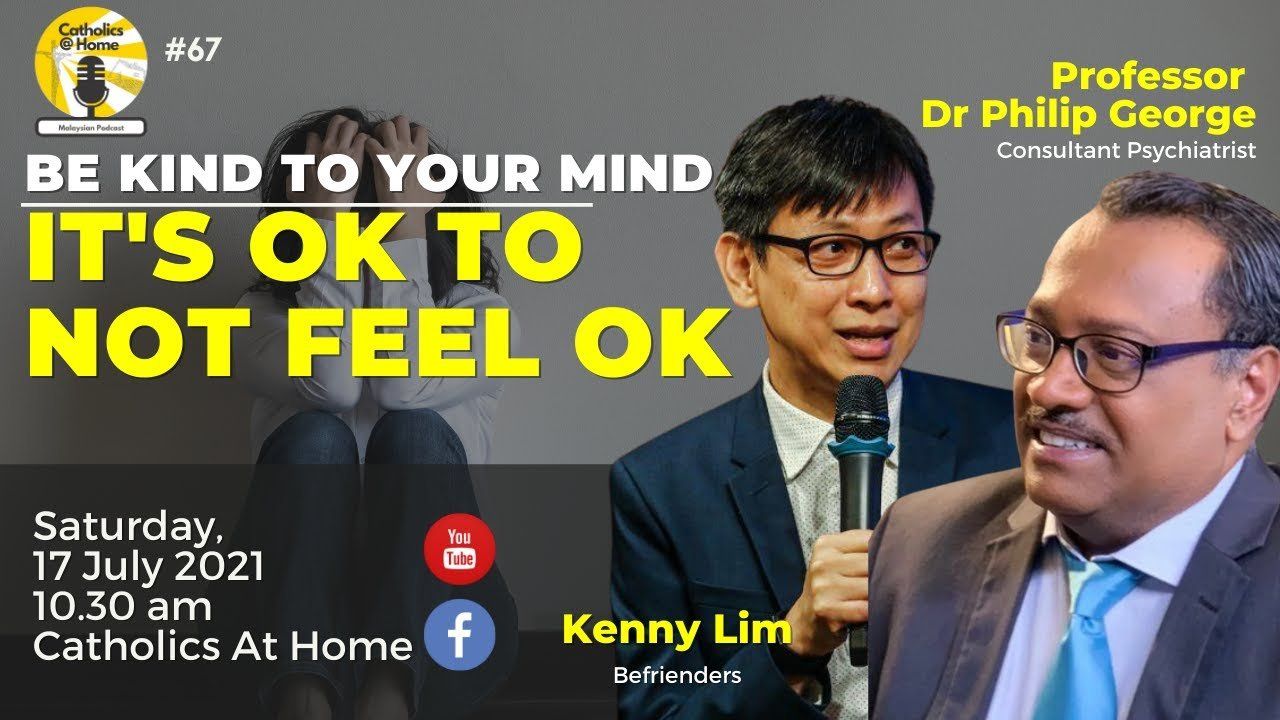
"We have neglected the mental health component in our education system and in teaching everyone how to deal with everyday stress," said Dr Philip George, a consultant adult psychiatrist and addiction specialist. "People who're coping during the pandemic are perhaps more resilient. They may have skills to care for their mental health and make it part of their lifestyle. Thus they may have better immune system to even ward off infection," he added. Dr Philip was sharing insights on mental health in a recent episode of Catholics@Home podcast. He describes mental health as important as brushing one's teeth in the morning, "We brush our teeth to prevent tooth decay. Likewise, we need to look at how much time we spend on mental health in a day and how to build it up in order to cope with this sort of disaster that happens in our lives." He pointed out that it's important to differentiate mental health and mental illness. He explains that mental health is experienced by everyone in the ups and downs of life. However, lack of care for one's mental health could lead to mental illness. Some of the signs of mental illness are physical and social isolation, spending extensive time playing video games, poor eating and sleeping habits, rapid weight lost and the person becomes more irritable. Dr Philip pointed out that if this pattern occurs in a short duration, it could be attributed to stress. However if the pattern is pervasive (continuous), it's an indicator of a psychiatric condition. Dr Philip says it's good to conduct regular audits on one's mental health and to look for ways to improve it. He recommends to use a mobile app, Sanvello and to keep a gratitude journal to jot down daily three things to be grateful for. On practical tips to begin the day, Dr Philip says that a good day begins with adequate sleep the night before. He recommends 6 to 8 hours of sleep for adults and 10 hours for teenagers. "I advise my patients to use positive thoughts prior to sleep which colours their whole dream and sleep quality so that they'll wake up feeling positive about the day," he says. "In the morning look in the mirror and say, "I'm a good person, I've got good things ahead of me and I want to make good things for myself". This will eventually determine how the rest of the day pans out. "A positive mind attracts positively. If you have negative thoughts and feel that you've nothing to look forward to, you'll only attract negativity to yourself. The Law of Attraction states that," he says. The second guest on the podcast, Kenny Lim, Executive Director of The Befrienders revealed that the organisation received an increase of 52% average daily calls between March - May 2020 compared to the same period in the year prior to that. This is an indication that more people are stressed up and need someone to talk to. The main reasons for the calls were relationship problems, psychological issues, family issues, social problems and job-related issues. Kenny encourages people who're struggling with mental health issues to seek help from helplines such as calling up The Befrienders. "Some people may find it overwhelming and scary to seek professional help. Therefore, I recommend them to use helplines as many people feel more comfortable speaking to strangers. "Don't worry too much about making the call. I encourage callers to say something and see how they feel. They may end the call anytime if they feel uncomfortable as every caller is in control," says Kenny who assures the anonymity of all callers to The Befrienders. "Some people may need to make a few calls before they're able to open up and that's perfectly fine." To view this podcast, go to: https://www.youtube.com/watch?v=8_k0rNei4vk
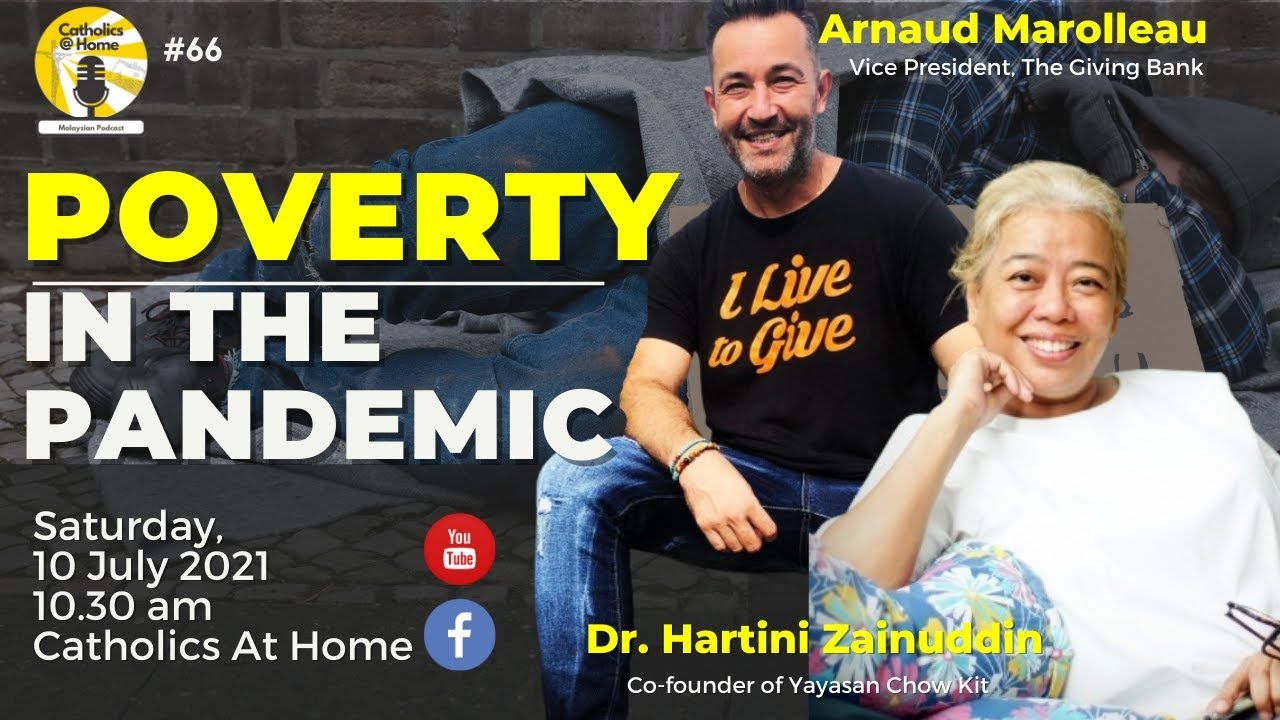
The Covid-19 pandemic has caused many individuals and families to fall into poverty after losing their source of income. Also known as the 'new poor', their cries for help have raised the alarm and many parties have stepped forward to provide aid. To understand what is really happening on the ground, Catholics@Home podcast had a conversation recently with Dr Hartini Zainudin, co-founder of Yayasan Chow Kit and Arnaud Marolleau, Vice President of The Giving Bank. Yayasan Chow Kit is a non-profit organisation that caters to the need of children and teenagers in and around the Chow Kit area in Kuala Lumpur. The Giving Bank is a non-governmental organisation (NGO) that works with all strata of society to overcome extreme poverty and injustice. Dr Hartini said that eventhough her work at Yayasan Chow Kit revolves around children, it has extended to all levels of society during the pandemic. There came a point where up to 100 families had requested for help daily. Her work with the destitute had led Dr Hartini to encounter many heartbreaking stories. She related a case where a mother with four children was given RM200 to last them a month. The mother then sent Dr Hartini a photo of her daughter eating plain porridge. When Dr Hartini queried why the RM200 was not used to provide nutritious food for the child, the mother confessed that she had used the money for rent. Dr Hartini says, "I think it's lofty and condescending in many ways to say, 'we do what we can' because we need to do more. "We need to share resources with a lot more people, because if we don't, children and the elderly are dying. "It can get overwhelming but if we help one family or person at a time, and when everyone pitches in, that will cover the whole country," she says. Second guest in the conversation, Arnaud Marolleau says that the pandemic is not about the existing poor, but rather about people who have become the 'urban poor'. "The existing poor have already learnt to manage their lives with a limited budget. However the 'urban poor' are people who have never experienced this massive change," says Marolleau, a native of France who had made Malaysia his home for the past 25 years. He shared an incident when he distributed food to a family in Brickfields. After handing them the food, a large crowd had gathered around his car asking for food too. "People are really in need and we see their frustration when they seek help from many places. The lockdown has pushed people over the edge. It's overwhelming as we don't see the end of it," he says. Responding to a question on the need to develop a platform where NGOs and charitable organisations are able to leverage on each others resources, Dr Hartini opines that such a platform is not necessary. "This pandemic is a short term crisis and not a corporate social responsibility initiative. Therefore there would be insufficient time to develop such a platform as aid must be sent to the needy immediately," she says. As a take away from the conversation, Fr (Dr) Clarence Devadass, advisor of the Catholics@Home podcast encouraged viewers to call up a few friends to help the needy. To view this podcast, go to: https://www.youtube.com/watch?v=YZWlnqgULh4
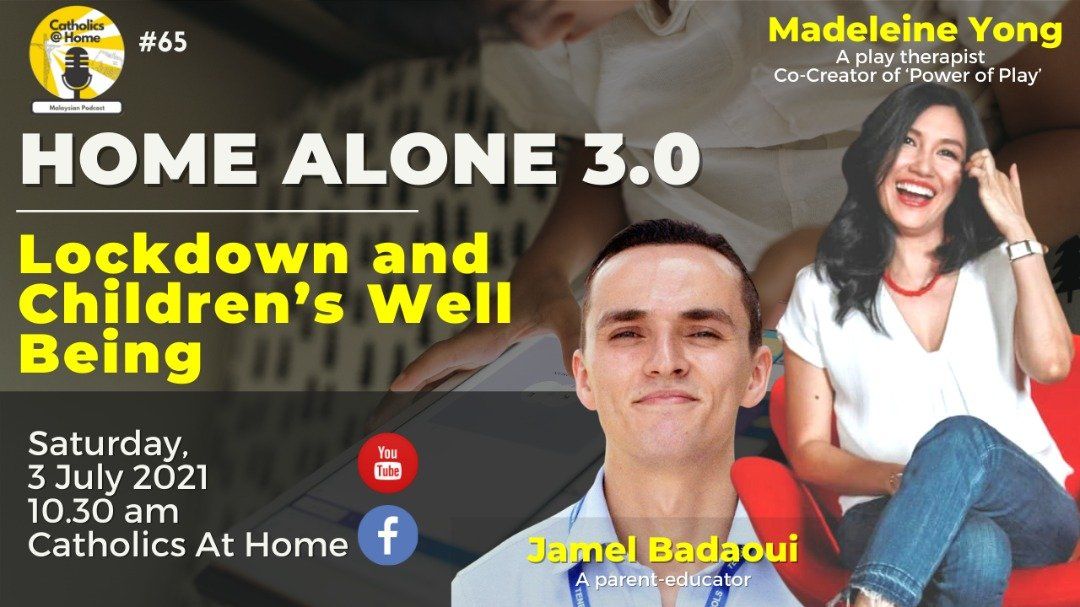
The mental health and well-being of children have become a concern during this pandemic as their formative years are disrupted, causing some of them to suffer from anxiety and depression. To learn how parents can help their children, Catholics@Home podcast recently conversed with two guests who're experienced in this area. First guest, Madeleine Yong who is a play therapist and co-creator of Power of Play says that children generally don't understand the COVID-19 pandemic. Power of Play is an organisation that offers clinical sessions to individuals and groups of children. She explains, "Certain children have perceived fears such as fearing their parents may contract the virus and pass away leaving them orphans. Some children suffer stress as a result of not being able to cope with online learning. All these stresses may cause behavioural problems to appear. " According to Yong, school closure, isolation, not having friends and boredom are some of the reasons that causes children to act out. She says, "There're two things that could happen - either the child will scream and yell, or keep quiet. However, a child that is quiet does not necessarily mean that they're obedient. Instead, it could mean that the child has shut down due to feelings of being overwhelmed." Yong reminded that a child with behavioural problems should not be perceived as a defiant or a rebel, instead it could be cry for help. "We need to go beyond punishing the child because when a child is acting out, e.g. hitting, kicking, yelling, blaming, demanding, controlling, fighting or running away, these are behaviours that the child cannot articulate." To cope with such a situation, Yong advised parents to learn to regulate, i.e. the ability to manage big emotions by staying present, in other words, learn to relax. She shares that this can be done by taking deep breaths, praying, listening to music, contemplation, silence, meditation and through movements (exercise). "When we manage our emotions, we'll be seen as co-regulators and you'll be able to help your child manage their emotions. The child will then learn from their parents to relax themselves. "Many children are insecure and they need someone to listen to them. Unless you know what your child is struggling with, you won't be able to respond from your heart," she says. Second guest on the podcast, Jamel Badaoui, says that in terms of mental well-being, it is important to promote positivity as much as possible. "Even though the pandemic is challenging, in the long term the situation is only temporary and therefore it is important to make the best of the situation. Essentially the child and parent must be placed in a position where they can embrace their challenges," says Badaoui who is an educator leader with over 12 years of experience holding middle and senior leadership roles across the United Kingdom, Singapore and Malaysia. He is currently the Deputy Head, Primary of an international group school. "It is not particularly healthy to worry about things that are beyond your control. Instead, limit your scope of worry to things within your control," says Badaoui who also emphasised the importance of having feelings of gratitude. Having two young children of his own, he says that parents have a huge responsibility to be role models for their children especially in modelling the right kind of attitude and perspective. Badaoui says that parents and children must have structure in their lives such as setting aside time for reflection and meditation. "Spending time with children is the key. You'll need to take an interest in your child's interest and spend time with them playing puzzles, reading books, eating chocolate, dancing, etc. Latch on to that and make that the highlight of your home environment," he says. Fr Clarence Devadass, advisor of Catholics@Home podcast summarised three aspects that could help preserve the mental health and well-being of children and their families, i.e. making time for each other, offering positive reinforcements and listening to one another. "A practical suggestion is to have meals together where family members can be present to one another," he says. To view this podcast, go to: https://www.youtube.com/watch?v=7-A_kllnM18


